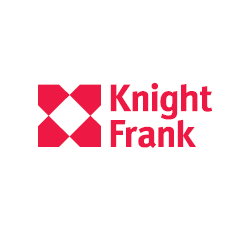(29 April 2024, Hong Kong) Knight Frank’s latest Hong Kong Monthly Report highlights the property market’s performance across different property sectors. The Hong Kong Island Grade A office market continued to face weak demand amid economic uncertainty. The Kowloon office market saw a significant rebound in leasing transactions. New letting transactions in March doubled compared to those in February.

The residential sector is teetering on the cusp of recovery following the government’s scrapping of the property-cooling measures in late February. Hong Kong’s retail market continued to be in the doldrums as the trend of residents heading north for shopping and leisure intensified.
Grade-A Office
Hong Kong Island
The Hong Kong Island Grade A office market continued to face weak demand amid economic uncertainty. The overall vacancy rate on Hong Kong Island hovered at a record high of 12.2%, boosted by a 0.7% increase QoQ. Central experienced the most significant rental decline among the major submarkets.
During March, leasing demand was driven mainly by Chinese mainland companies. A handful of upgrading cases were recorded over the month, further intensifying the flight-to-quality trend.
As office landlords are pressured by the prevailing record-high vacancies, they are compelled to offer more flexible leasing packages and incentives, such as a fit-out allowance and free amenities, to drive tenancy deals.
Despite the present lack of new demand, in the long run, we expect the office market to benefit from the Hong Kong government’s initiatives. More family offices and capital investments will be attracted to Hong Kong via the New Capital Investment Entrant Scheme. In addition to boosting investment activity, we believe these initiatives will generate additional demand for office leasing.
Kowloon
The Kowloon market saw a significant rebound in leasing transactions. New letting transactions in March doubled compared to those in February, as many companies halted business activity during the Chinese New Year in February. In March, most transactions involved small to medium-sized premises, with an average size of about 4,000 sq ft.
In Q1 2024, significant transactions and expansion demand were driven mainly by government and quasi-government organisations, insurance companies, and Chinese mainland companies.
The outlook for 2024 remains challenging, as weak economic sentiment and conservative plans for business expansion continue to sap leasing demand. Nonetheless, we are cautiously optimistic about the market this year, as we believe it has already bottomed.
Residential
The residential sector is teetering on the cusp of recovery following the government’s scrapping of the property-cooling measures in late February. Transaction volumes, captured by the Land Registry turned the corner, recording remarkable growth of 67.2% MoM in March. Primary and secondary sales surged by 139% and 4.1% MoM, respectively. However, according to the Rating and Valuation Department, overall prices still fell by 1.7% MoM and 12.8% YoY in February, the 10th consecutive monthly decline.
As highlighted above, primary sales witnessed a significant rebound as developers actively launched new developments at discounted prices to clear inventory. We also noted a resurgence in big-ticket buyers purchasing first-hand units in bulk since the withdrawal of the property curbs.
The luxury market has seen an influx of high-profile mainland buyers with backgrounds in the financial industry.
Despite buoyant buying sentiment and higher transaction volume since the removal of all property curbs, we believe that in the near term, developers will continue to put new flats up for sale at a discount to compete for buyers. The potential delay in interest rate reductions may also damper market recovery.
Retail
Hong Kong’s retail market continued to be in the doldrums as the trend of residents heading north for shopping and leisure intensified. Total retail sales value in February increased by 1.9% YoY to HK$33.8 billion. However, this growth rate was excessively modest and disappointing.
Owing to weak spending by locals and Chinese mainland visitors, several supermarket operators closed.
On a positive note, we witnessed some active expansion by Chinese F&B operators. Simultaneously, Hong Kong’s luxury retail market is also set to regain some lost ground as some high-end brands gradually find their way back into the city. Looking ahead, retail sales in Q2 are expected to remain soft, as weak local consumption persists. Shop rentals in core retail areas are expected to remain under pressure in the short term, as the absorption rate is still slow, given the cautious attitude of retailers and F&B operators towards expansion plans.












